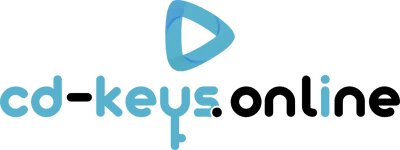Trading in unused software has the green light from the European Court of Justice.
Legal trading of "used" or unused software is now available in Slovakia. The legality of such sales has been confirmed by a decision of the Court of Justice of the European Union in July 2012, which represents a significant milestone in the field of information technology. The Court's decision provides unprecedented legal certainty for customers of secondary licenses and represents a significant cost saving for them on licensed software. At the same time, software manufacturers cannot prohibit their customers from selling their surplus licenses, and this also applies to so-called OEM licenses.
The second-hand licence market has existed on the Western European market for more than a decade. As there has been no Slovak precedent in the form of a court decision, despite the legality of buying and selling second-hand software, some private individuals and companies have been reticent about such trading. However, the decision of the Court of Justice of the European Union, which has been five years in the making, brings us this possibility today.
Software manufacturers can no longer put obstacles in the way of the resale of software licences, even if the customer installs the software from a site downloaded from the Internet after purchasing the licence in question (as, for example, most companies do with volume licences). Since legal certainty is now fully ensured for all users of used licences, the manufacturer can no longer prohibit the customer from selling such licences and therefore those passages in licence or other agreements which contain such a prohibition are invalid. The Court of Justice of the European Union does not rule on national disputes, but in this decision it also provides a method of interpretation of decisions for national courts in similar cases, and national courts are moreover obliged to act in accordance with this decision of the Court of Justice of the European Union.
"We will talk about this decision of the CJEU in the future as historic because it brings huge changes to the lives of software producers and users. We can count on further significant cost savings for small and medium-sized enterprises as well as for large or multinational companies when trading in large volumes. In our opinion, this decision of the Court of Justice of the European Union can significantly accelerate the development of trading in used software on the Slovak market as well."
Legal background and expected impact on the Slovak market
At first glance, the Court's decision concerns Oracle licenses. In the decision, the CJEU has made such a strong statement concerning the licenses of all software manufacturers, thus putting an end to any uncertainty. In this case, we can speak of a comprehensive, precedent-setting judicial decision. Its impact is great and will affect almost everyone (both users and software producers). This decision changes almost all the previous rules of the game.
For some manufacturers, such as Microsoft or SAP, the so-called "license transfer" has been possible until now. The legal "path" of the process of such a transfer was thin and was bound by several conditions. Further, the transfer of volume licenses, such as the Microsoft Enterprise Agreement, required the consent of the manufacturer. In the future, however, this transfer "path" will turn into a "highway" as the possibility of trading volume licenses will be opened.
The obligation to obtain the manufacturer's consent for the transfer will disappear, as the manufacturer cannot say "NO" or even prohibit the transfer. This is even if the licence agreement explicitly prohibits further transfers. In doing so, the court again reminds manufacturers that law is above contracts. It leaves no room for producers to circumvent the will of the European Union by means of contracts in order not to put themselves in a position of power in individual markets where they would truncate the rights of customers in pursuit of their own objectives.
In the context of the transfer of OEM licences, there has been discussion in the Czech Republic, unlike in other European countries, about the possibility of 'transferring' OEM licences (e.g. when scrapping hardware), or the possibility of selling OEM licences and used hardware separately. This debate was also definitively ended by a court decision in favour of customers and the second-hand market. The court even declared that, in contrast to the current rules - when only the materialized license (OEM sticker and the corresponding CD/DVD media) could be sold - from now on the customer can produce the data carrier himself and thus, based on the "exhaustion of rights doctrine" ("exhausting rule"), the original data carrier from the software manufacturer is not necessary for the resale of the license. Thus, almost all software becomes portable.
The annual acquisition cost of licences accounts for a significant part of the IT costs in companies. Companies can now procure as many licenses and in the version they need. They do not need to purchase the latest versions of software at any price when the company is still using older, previous versions of software that are sufficient for their needs. In this way, they can save up to 30-50% of the cost of software procurement. A used license is the same as a new one - it doesn't wear out, it 's "new" again and again with each installation, and it's available at very reasonable prices.
Although manufacturers offer software in a variety of complicated licensing constructs that offer opportunities for realizing savings, these rules must be perfectly understood in order to have the desired effect. Buying used software, however, brings savings immediately. The money saved in this way can be invested in improving IT infrastructure, in optimising processes or in the ever-necessary training of human resources. If we look at the decision of the Court of Justice of the European Union in a different light, it may ultimately also mean the creation of new jobs in the Slovak Republic and in other regions.
